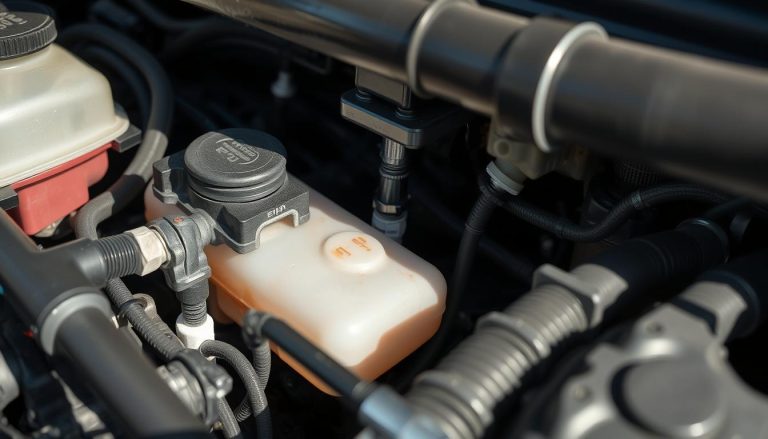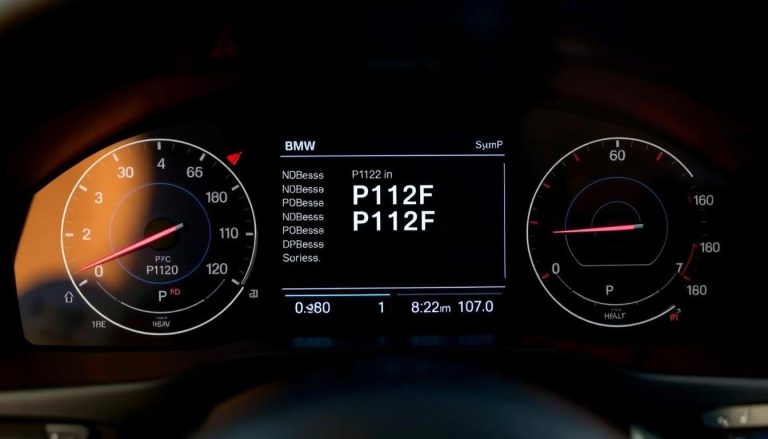If you’ve ever seen the P0260 code pop up on your vehicle’s dashboard, you might be feeling a mix of confusion and concern. This seemingly cryptic code isn’t just a random series of numbers; it’s a signal from your car that something may not be quite right with its fuel injection system. Ignoring it could lead to more significant issues down the road, but understanding what it means can empower you as a driver.
Whether you’re experiencing performance hiccups or just want to stay informed about your vehicle’s health, diving into the world of diagnostic trouble codes like P0260 is essential for every car owner. Let’s unravel this mystery together and explore everything there is to know about the P0260 code—from its causes and symptoms to diagnosis and potential fixes.
What does the P0260 code mean?
The P0260 code refers to an issue with the fuel metering control of the injection pump. Specifically, it signals a problem in “Fuel Metering Control B,” which is linked to components such as the camshaft, rotor, or injectors.
When this code is triggered, it indicates that there’s an intermittent fault in these systems. This can mean erratic fuel delivery or inaccurate readings from the sensors responsible for managing fuel flow.
Understanding what P0260 means is crucial for diagnosing potential performance issues. It often points to problems that can affect engine efficiency and overall drivability if left unchecked. Recognizing this early helps ensure your vehicle runs smoothly and reliably while avoiding costly repairs down the line.
What parts can be affected by P0260 code ?
When the P0260 code appears, several critical components may be impacted. The injection pump is often at the forefront, as it plays a vital role in delivering fuel to the engine efficiently.
Additionally, the fuel metering control system can experience problems. This affects how precisely fuel is measured and injected into the combustion chamber. Any inconsistencies here can lead to performance issues.
The camshaft and rotor are also susceptible since they help regulate timing for proper fuel delivery. If these parts malfunction, it disrupts the entire injection process.
Individual injectors could fail or perform poorly due to this code. Since each injector works independently but contributes collectively to engine function, trouble in one can influence overall efficiency. Addressing any of these affected parts promptly is key to maintaining vehicle health and performance.
What are the possible causes of a P0260 code?
The P0260 code can stem from several underlying issues. One common cause is a malfunctioning fuel injector. If the injector fails to operate correctly, it disrupts the flow of diesel or gasoline into the engine, triggering this error.
Another potential culprit is a problem with the injection pump itself. This component regulates fuel delivery and pressure; if it falters, you could see erratic performance and fault codes flashing on your dashboard.
Worn-out wiring or poor electrical connections also play a significant role. Damage in these areas can lead to intermittent signals that confuse vehicle sensors.
Low fuel pressure caused by clogged filters may contribute to this issue as well. Each of these causes warrants careful inspection during diagnosis for effective resolution.
What are the common symptoms of a P0260 code?
When the P0260 code triggers, several symptoms may surface that indicate issues with fuel metering control. One of the first signs you might notice is erratic engine performance. The vehicle could hesitate or stumble during acceleration.
You may also experience a decrease in fuel efficiency. This occurs because improper fuel delivery can lead to excessive consumption without delivering optimal power.
Another common symptom is rough idling. If your engine feels unstable while stationary, it’s worth investigating further.
In some cases, you might see warning lights illuminating on your dashboard, alerting you to potential problems within the engine management system.
If there are unusual noises coming from the engine bay—like knocking or pinging—it could hint at underlying issues related to the P0260 code. Each symptom serves as an important indicator that something isn’t functioning correctly within your vehicle’s fuel system.
What are the diagnostic steps for a P0260 code?
When diagnosing a P0260 code, the first step is to connect an OBD-II scanner. This tool will read the trouble codes stored in your vehicle’s computer system.
Next, visually inspect wiring and connectors related to the fuel metering control. Look for signs of damage such as frayed wires or corrosion, which can interrupt signals.
After that, you should check the camshaft and rotor position sensors. These components are crucial for accurate fuel injection timing.
Using a multimeter, test sensor voltages against manufacturer specifications. If readings are off, replacements may be necessary.
It’s also important to examine the fuel injectors themselves for clogs or leaks. A faulty injector can lead to inconsistent fuel delivery.
Clear any fault codes after repairs and take your vehicle for a test drive to see if the P0260 code returns.
How serious Is the P0260 Code? Can I continue driving with the P0260 code?
The P0260 code indicates an issue with the injection pump’s fuel metering control. This fault can lead to decreased engine performance and efficiency.
While you might feel tempted to continue driving, it’s essential to consider the potential consequences. Ignoring this code may result in further damage to the fuel system or even complete engine failure over time.
You could experience rough idling, stalling, or poor acceleration if you choose to drive your vehicle while this code is present. These symptoms can create hazardous situations on the road.
It’s advisable not to take chances with such issues. A proactive approach ensures safety and prevents more expensive repairs down the line. Addressing a P0260 code promptly is key for maintaining vehicle health and performance.
What are the repair solutions for a P0260 – Injection Pump Fuel Metering Control B Intermittent (Cam/Rotor/Injector) ?
Repairing the P0260 code involves a few key steps. First, it’s essential to conduct a thorough inspection of the fuel injection system. This includes checking for any visible damage or leaks in the injectors and associated components.
If issues are found with the fuel metering control, replacing faulty sensors may be necessary. Sometimes simply cleaning these parts can restore functionality.
In cases where wiring is damaged, repairing or replacing wiring harnesses might be required. Ensure that all connections are secure and free from corrosion.
Additionally, testing the engine control module (ECM) can pinpoint if it’s malfunctioning. If so, reprogramming or replacement could solve persistent problems related to this code.
Regular maintenance and using high-quality fuel can also prevent recurrence of similar issues down the line. Addressing these repairs promptly is crucial for optimal vehicle performance.
What other codes may be related to P0260?
When dealing with the P0260 code, it’s important to consider other related trouble codes that may appear. Codes such as P0201 through P0208 indicate injector circuit issues for cylinders one through eight. These are directly tied to fuel delivery problems.
You might also encounter codes like P0216 or P0217, which signal issues with the injection pump timing. This can exacerbate your situation if not addressed promptly.
Additionally, keep an eye out for codes like P0251 and P0252. They pertain specifically to fuel metering control malfunctions and can further complicate diagnostics involving the injection system.
Understanding these connections helps in diagnosing root causes more effectively and streamlining repairs down the line. This comprehensive approach ensures all potential problem areas are covered during troubleshooting procedures.
How much does it cost to diagnose and repair a P0260 code?
The cost to diagnose and repair a P0260 code can vary significantly depending on several factors. Typically, diagnostic fees range from $100 to $200 at most auto repair shops. This charge usually covers the technician’s time spent inspecting your vehicle and using specialized tools.
Once diagnosed, repairs can become more complex. If the issue is with a faulty injector or fuel pump, you might be looking at anywhere between $300 and $1,500 for parts and labor. Labor costs typically account for a large portion of this expense.
Keep in mind that additional issues may arise during diagnostics that could further increase costs. Always request an estimate before proceeding with repairs to avoid unexpected surprises down the line.
How long does it take to diagnose and repair code P0260?
Diagnosing the P0260 code can vary in time based on several factors. Typically, a skilled technician needs around one to two hours for an accurate diagnosis. This includes reading error codes and performing visual inspections.
If the issue is straightforward, repairs might take just a couple of additional hours. However, if further investigation reveals more complex issues with components like the injection pump or fuel metering system, it could extend the repair timeline significantly.
Expect delays if parts need replacement or special tools are required. Some shops may also have backlogs that affect service speed. Both diagnosis and repair times will depend heavily on your vehicle’s specific condition and the workload at your chosen service center.
Is the P0260 code specific to certain car makes or models?
The P0260 code isn’t limited to specific makes or models. It often appears in a range of vehicles equipped with diesel engines, particularly those featuring high-pressure fuel systems and electronic control modules.
Manufacturers like Ford, GM, Dodge, and others may see this code pop up due to similar underlying technology. However, the symptoms can manifest differently depending on the vehicle’s design and components.
While some brands have more common occurrences of this issue based on their engine configurations, it’s essential for car owners to be aware that any model could potentially experience the P0260 code under certain conditions.
Understanding your vehicle’s particular make will help in diagnosing issues effectively and determining how serious the P0260 situation might be for your ride. This highlights the importance of consulting repair manuals tailored to your specific model when troubleshooting.
How can I avoid a P0260 code?
To avoid encountering a P0260 code, regular vehicle maintenance is crucial. Keep up with scheduled oil changes and fuel filter replacements to ensure optimal engine performance.
Using high-quality fuel can also make a significant difference. Poor quality gasoline may contain contaminants that affect the injection system.
Another key factor is monitoring your engine’s health through routine checks. Pay attention to any unusual sounds or warning lights on the dashboard.
Keeping an eye on your vehicle’s diagnostic codes using an OBD-II scanner helps catch potential issues early before they escalate into more serious problems.
Consider having professional inspections periodically. A trained technician can identify wear and tear in components like injectors and pumps before they lead to error codes such as P0260.
What happens if you ignore a P0260 code?
Ignoring a P0260 code can lead to several complications that might worsen over time. Initially, you may experience reduced engine performance and fuel efficiency due to improper fuel metering. This could result in stalling or rough idling as the vehicle struggles with inadequate power delivery.
Moreover, neglecting this issue could trigger further damage to your injection system components, including the camshaft and rotor. A malfunctioning injector might cause excessive wear on other parts of the engine, leading to costly repairs down the line.
Additionally, an unresolved P0260 code often results in check engine lights illuminating consistently on your dashboard. This not only affects driving comfort but also makes it difficult for you to identify any new problems that may arise.
It’s essential to understand that while it may seem tempting to ignore minor warning signs like a check engine light associated with a P0260 code today, doing so can lead you into deeper troubles tomorrow. Addressing this issue proactively ensures better vehicle reliability and longevity while keeping repair costs manageable.


